Description
Garry’s coffee special features three of our more interesting coffees. Higher acidity, interesting processing, this bundle is leaning towards more exotic coffee tones.
*Bundles change over time. You will get the listed coffees at the time of order.*
A pound each of:
Mexican Terruño Nayarita – Afrutada Fantastico Reserva – Natural
Want to know why we think Terruño Nayarita is so cool? Check out our new blog post about them.
This is a co-op that holds a special place in our hearts. This coffee is from 100% traceable, directly traded micro-lots. Each bag is uniquely identified with a bar code and a serial number which can be used to see everything behind its production, click here to check it out. Gathered around an extinct volcano, Cerro San Juan, a committed group of 260 cooperative coffee farmers are working together to produce arguably the best coffee in Mexico. Terruño Nayarita coffees come from heirloom trees. The word ‘Terruño’ means ‘homestead’. These are farmers that take great pride in their coffee. This is the top screen-size/grade from the Terruño Nayarita Co-op.
Tasting Notes: Always one of our favorite Mexican coffees. Good from light to dark. Although Natural processed, this is not a fruit bomb like many other natural processed coffees, has slightly fruity overtones that balance great with a little citric, malt, cocoa and nutty undertones. Its a little fuller bodied cup than most Terruno lots with above average sweetness. Lighter roasting will have noticeable citric crispness upfront accentuating the fruitiness, but can risk a little dry nutty aftertaste if too light. Medium roasts balance the tones nicely and smooth out the citric tones. Darker roasts turn more chocolaty, gets pretty roasty and smoky, retains a sweet edge and shows hints of fruitiness as the cup cools. A good daily drinker across the roast levels.
Roasting Notes: A nice medium roast is the way to go, can lean it a little lighter or darker depending on personal taste. Roasts pretty even for a natural but you will see a couple outliers, it is a bit higher chaff, we still put it in the easier to roast category.
China Premium Yunnan – Torch Coffee – Menglian Red Honey
In the United States, when we think of China, we usually think of tea, but few people have actually tried its coffee. It’s surprising how uncommon it is, considering that it has been cultivated for over 100 years. Most of it is consumed in China and neighboring countries, and only recently have they started offering specialty coffees. This is an origin you shouldn’t overlook in your exploration of the coffee world.
This is season three of working with Torch Coffee, a company with deep knowledge of the Chinese coffee scene. They conduct training and offer certification programs throughout Asia, and they recently began sourcing and roasting specialty coffees from different regions of China, which we are pleased to add to our selection. These are very flavorful and unique coffees; this Menglian Red Honey is a wonderful semi-exotic, not over the top like the double ferment, but more character and fruitiness than washed processed coffee.
This lot comes from Menglian (Dai-Lahu-Wa Autonomous County), part of Pu’er City, very close to the Myanmar border. It is a mountainous subtropical region with a large diurnal temperature range and typical altitudes of 1,100–1,600 meters above sea level—ideal conditions for high-quality Arabica coffee.
Tasting Notes: Clean, sweet and balanced, this is the Yunnan offerings for most coffee fans. Best at the light to medium roast levels: there is a little crisp citric upfront, a bit more lime than lemon, a hint of red fruit giving a sweet edge. These lovely lighter tones pull some balance with a nutty/chocolate like undertone with a bit of spice, accentuated as you push the roast darker. Medium bodied, medium brightness levels, small hints of red fruit more noticeable as the cup cools. Light roasts themselves are much more citric, good to give a longer setup if shooting light, mellow out the crispness a bit. Turns much more chocolaty at the darker roasts but will introduce potent bitter, semi-sweet chocolate like notes. Medium roasts present the best balance and would qualify as a jazzy daily drinker.
Roasting Notes: Best at light to medium roast levels but works light to dark. A more delicate balanced cup that most coffee heads can appreciate. This is a relatively easy coffee to roast, despite being a little higher chaff levels. Lighter roasts emphasize the acidity and fruitiness; however, for a more balanced cup, a slightly medium/light roast is recommended. A longer roast will soften the cup and increase flavor depth, resulting in a stronger, more chocolatey and spicy flavor. This coffee is ideal to drink 12 hours after roasting, but it is recommended to let it rest for 3 to 7 days to appreciate its full potential.
Rwanda Premium Nyamasheke – Mutovu Station – Natural Processed
The Nyamasheke district in Rwanda is gifted in terroir. The cool, humid climates of both Lake Kivu and the Nyungwe Forest National Park keep groundwater abundant throughout the uniquely hilly region. Kivu itself is part of the East African Rift whose consistent drift creates volcanic seepage from the lake’s bottom and enriches the surrounding soils. Coffees from this region are often jammier and heavier than in the rest of the country. Coffee from Cyiya’s farmers in particular are honey-sweet and tend to be delicately floral, with lychee, citrus, and sweet tobacco flavors.
Tasting Notes: A very fresh and semi-exotic Rwanda coffee. A good cup from light to medium roasts. A little brighter cup with a citric and grape/apple like fruitiness upfront. Pulls some contrast with a semi-sweet chocolate tone, some lingering African spice in the aftertaste. A milder “natural” processing, adds some great complexities to the taste, raised sweetness levels and hints of fruit but no boozy or over fermentation noted. The medium roast offers a smooth cup with an accentuated bakers chocolate note, hints of the fruitiness in the aftertaste and as the cup cools. Darker roasts add complementary roasty notes, a sweet flavor of caramelized sugar and chocolate, with a hint of spice, lower acidity, and a fuller body, although its fruity notes are somewhat overshadowed by the chocolate. It is undoubtedly a coffee with a great balance between sweetness and fruitiness.
Roasting Notes: This coffee roasts well from light to medium. Roast lighter if you prefer higher fruity acidity and a medium-floral body. In a medium roast, you can find a balance between bright acidity and a fuller body, enhancing the chocolate and cocoa notes while still complementing the fruit flavors of this coffee. Darker roasts are perfect if you prefer more intense semi-sweet chocolate notes and a more robust body, although this will sacrifice some acidity and hide the fruitier characteristics. It produces a little more chaff, so it is recommended to clean the chaff collector before roasting. It roasts evenly and can darken a bit quickly in the roaster, so be sure to monitor the bean expansion if you are aiming for a lighter roast.
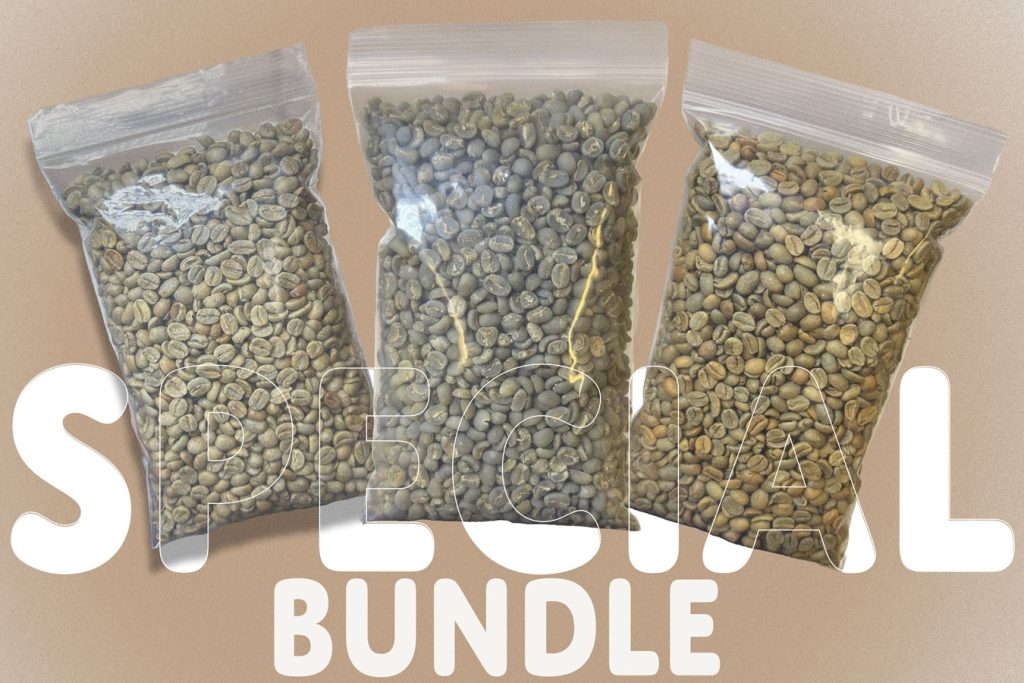
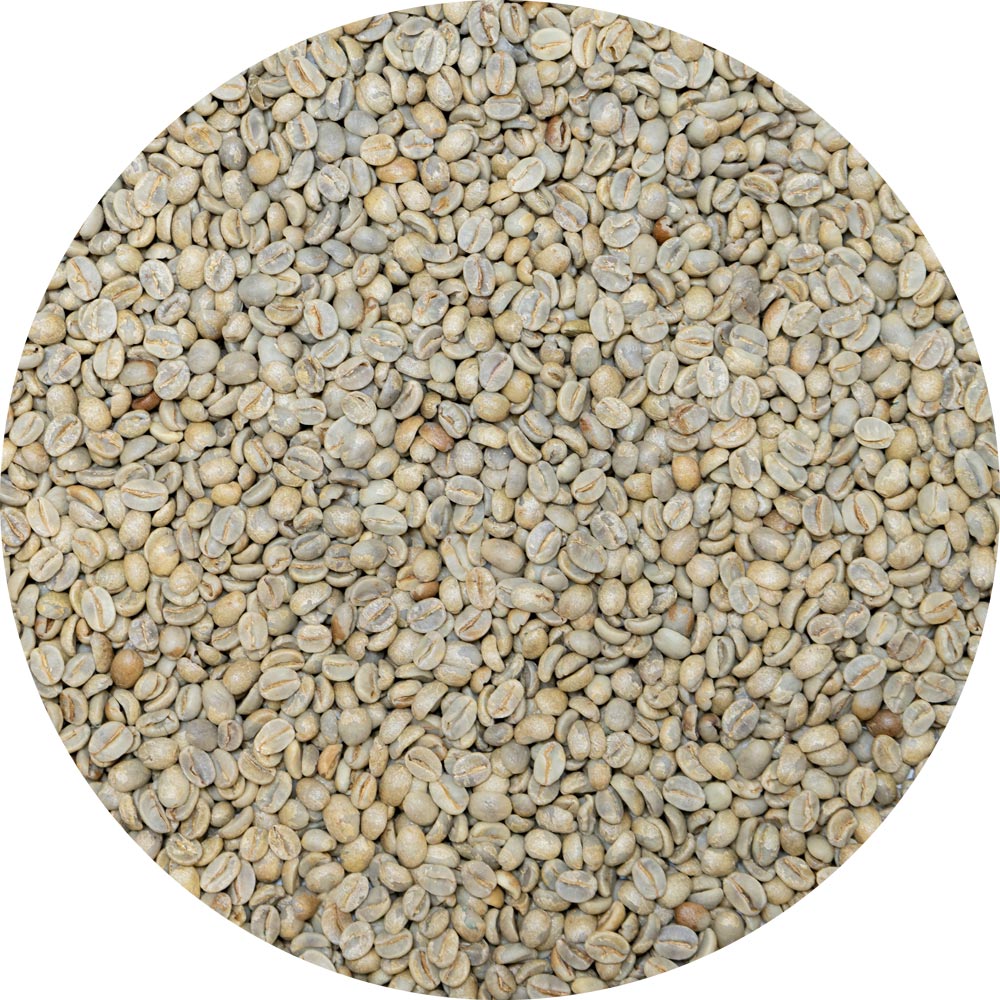
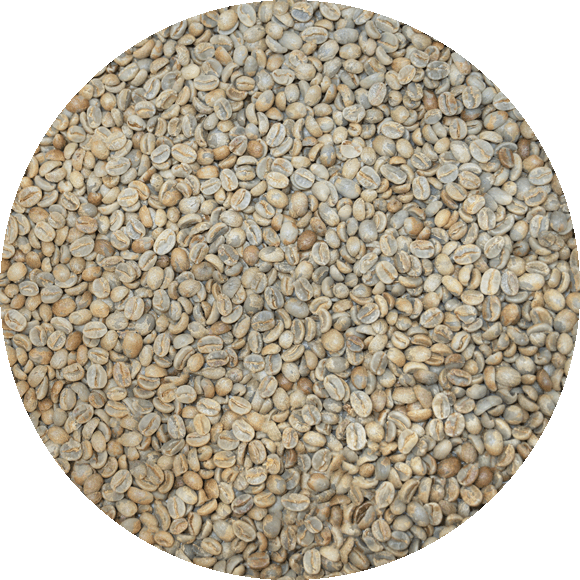
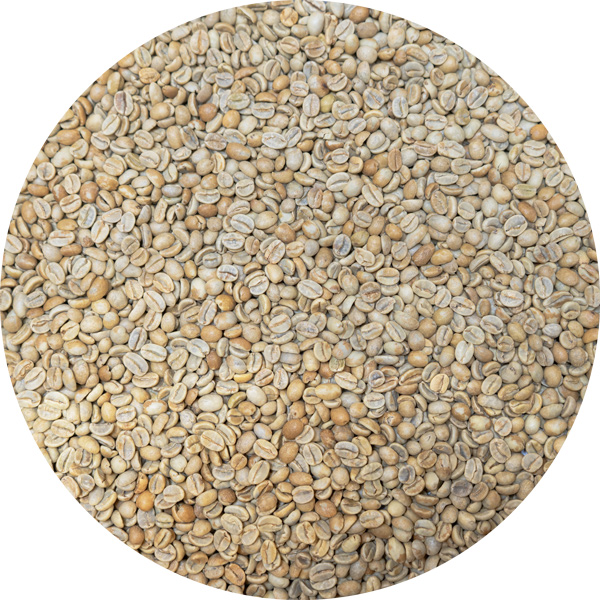
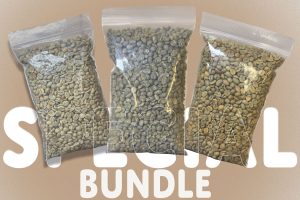
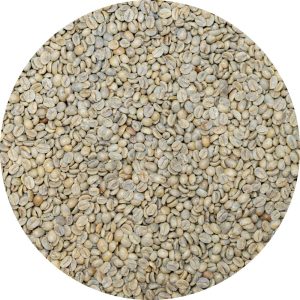
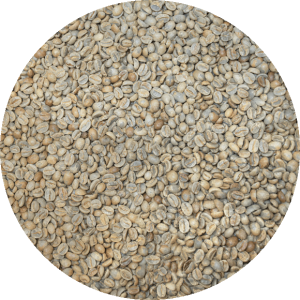
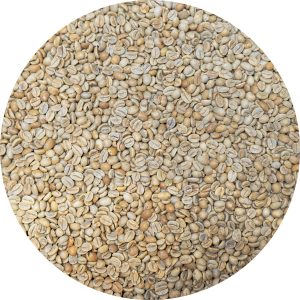
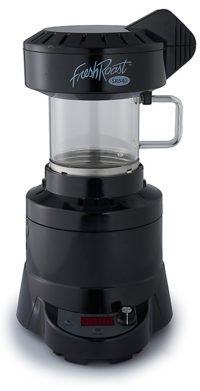
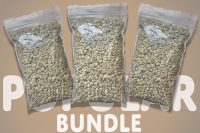
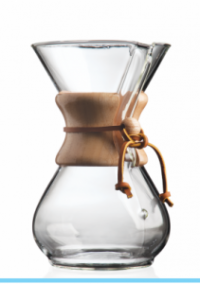
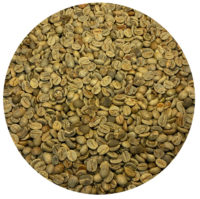

Reviews
There are no reviews yet.